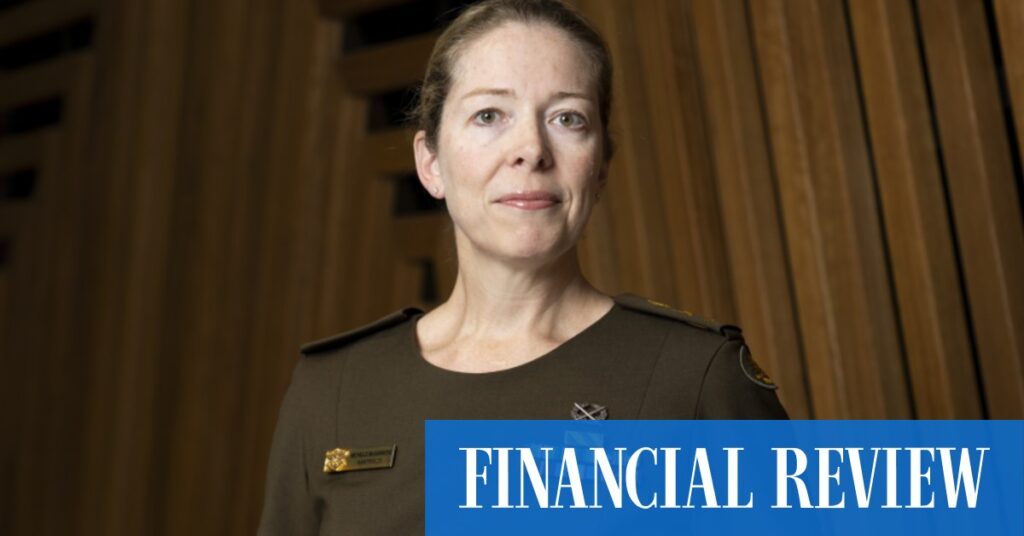“We know what they want and we have the experience to meet it.”
As part of the coordinator's work, the National Cyber Security Agency is intensifying exercises with major companies and departments on how to manage cyberattacks.
“When you're faced with a crisis, it's really important that you don't think about how you're going to respond in the moment of crisis,” she said.
“The results vary, but I don't think any of us are weaker than others.”
General McGuinness, a 30-year veteran of military intelligence, was appointed cyber coordinator last month, replacing the first coordinator, Air Force Commander Darren Goldie, who was recalled to the Air Force over undisclosed workplace issues.
General McGuinness had most recently returned to Canberra from Washington as Deputy Director-General for Federal Integration at the Defense Intelligence Agency.
The co-ordinator role was created to work across government agencies as part of a broader strengthening of how Australia responds to and prevents cyber-attacks in the wake of the Optus and Medibank attacks.
Last year's Australian Cyber Security Center update said a cyber attack was reported every six minutes, but General McGuinness believed it was worse than that.
“I think it's just the tip of the iceberg because it's only been reported,” she said.
“We are a very attractive target for cybercriminals, a low-cost, high-return operation.
“We have seen attacks increase in number, velocity, and sophistication, and continue to evolve and become more complex.
“That number will continue to grow as we continue to adopt emerging capabilities in critical technologies.”
The government's cybersecurity advertising campaign is set to ramp up this week with three key messages. One uses a passphrase that combines four words and complex characters, making it difficult for hackers to guess your password. We encourage widespread use of multi-factor authentication to add a second level of protection to your account. Update your software regularly.
General McGuinness said the campaign aims to change habits and behaviors and make people understand that cybersecurity is everyone's job.
“These three simple things, according to our expert community, will strengthen our cyber posture as a nation,” General McGuinness said.
“As a nation, someone's vulnerability is a risk to all of us. We are so interconnected.”
One of the early tests for the Coordinator and the National Cyber Security Agency was last year's hack into law firm HWL Ebsworth. The breach resulted in the theft of approximately 2.5 million documents and affected 65 government agencies and numerous businesses.
She praised the company's involvement with the government in response to the breach. As part of its response, HWL Ebsworth was granted an injunction to prevent it from releasing the stolen information and refused to pay a $4.6 million ($7 million) ransom to the Russian hackers.
“In reality, there is no guarantee that you will ever be able to access your information again, there is no guarantee that it will not be stolen or leaked online, and it does not reduce the likelihood that you will be targeted again online.” General McGuinness said of the Government's advice. Pay the ransom.


